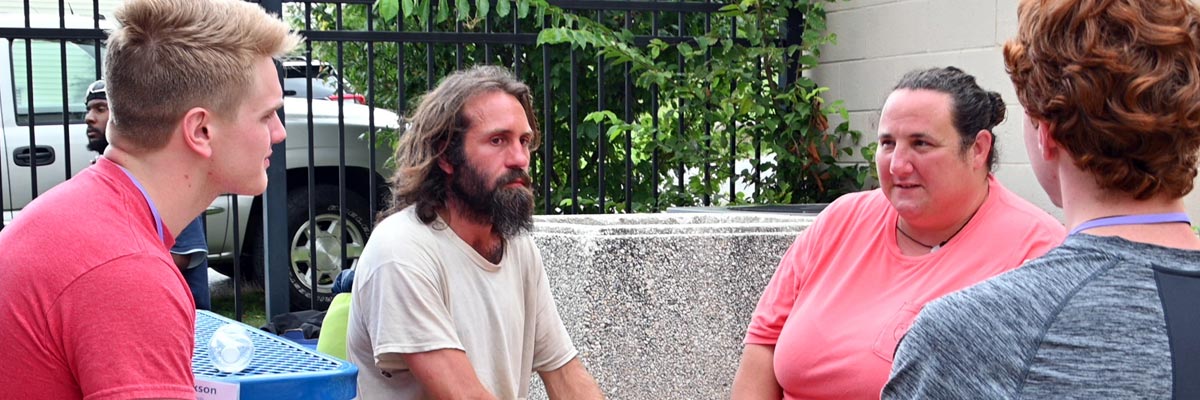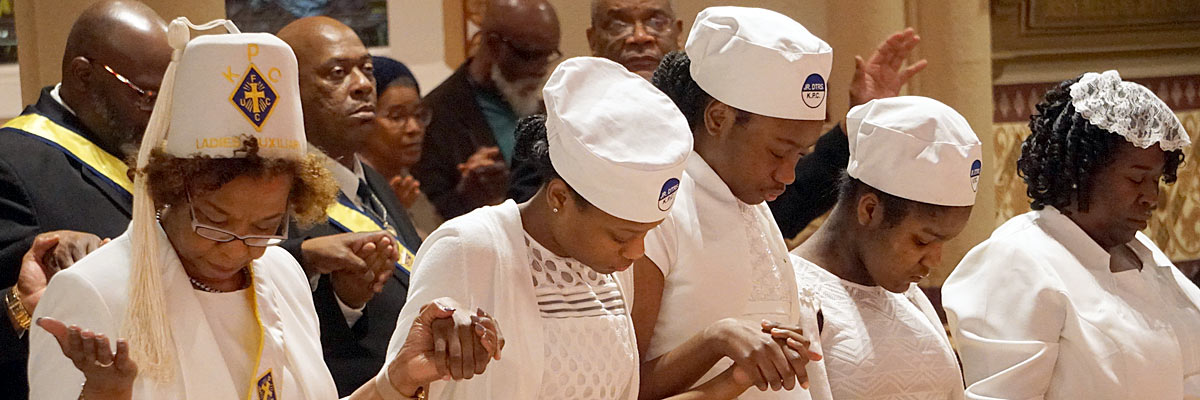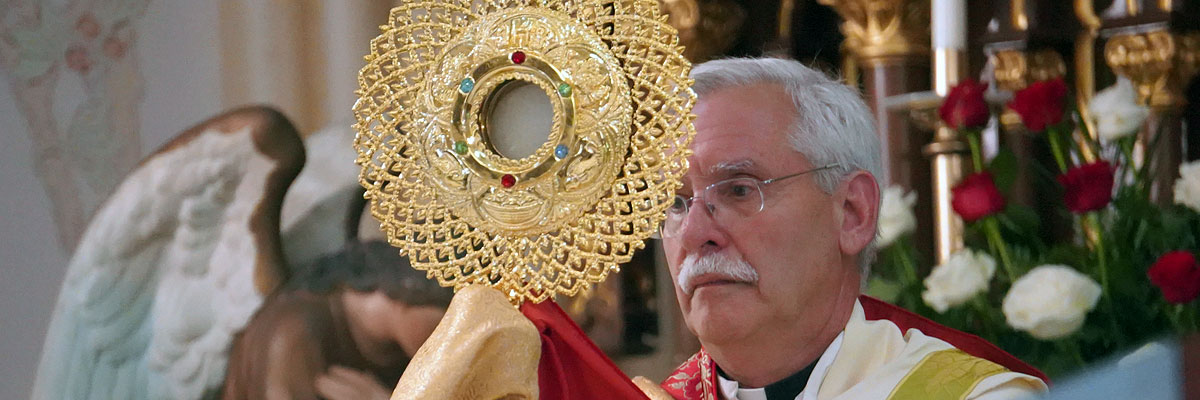Official Website of the
Catholic Diocese of Little Rock
Diaconate Ordination of Stephen Hart and Matthew Glover
Published: May 25, 2016
Bishop Anthony B. Taylor preached the following homily at Christ the King Church in Little Rock on Wednesday, May 25, 2016. It is based on the following readings: Mark 10:32-45; 1 Kings 17:7-16; and 1 Peter 1:18-25.

Bishop Taylor
When Bishop Kenneth Untener was installed as the bishop of the Diocese of Saginaw, Mich. in 1980, the year I was ordained a priest, he began his homily by appearing at the pulpit with a waiter's towel over his arm, holding a pen and notepad in the other hand, ready to write down a dinner order.
His first words to the congregation were, "Hello, my name is Ken, and I'll be your waiter." What a beautiful image for any of us called to ordained ministry. Something Jesus is teaching James and John in the Gospel you just heard.
James and John, along with Peter, were the first disciples whom Jesus called from their work as fishermen on the shore of the
In our second reading, Peter calls us to sincere mutual love, that we should love each other "intensely from a pure heart." And in today's Gospel that love and service come together in the person of Jesus Christ who "did not come to be served but to serve and to give his life as a ransom for many."
So if Jesus was going to found his Church on Peter as we learn in Matthew's Gospel, James and John wanted to know what will be in it for them when Jesus comes in glory — seated at his right and at his left, the highest places of honor and power?
No, true greatness in Jesus' Kingdom is not measured in power, status or control of others but by humble service. Notice that while salvation is a gift freely given, greatness can be earned. But it can only be earned by a life of love and service.
The more self-sacrificing the service, the greater the disciple. That's why in this Gospel Jesus tells his disciples: "anyone who wants to be first among you must be the slave of all."
Stephen and Matt, we are about to ordain you to the diaconate and, of course, you know that the word "deacon" means "servant." Meaning, in the upside world of the
But don't forget that while you are called to this greatness in the context of ordained ministry, this greatness is within reach of everyone gathered here today. Indeed, one reason we are set apart through ordination is so that we may serve this servant community more fully.
This includes living lives that model for others the selfless service to which all followers of Jesus are called, inspiring them to do likewise. This includes helping others access their own gifts for service, serving them in a way that empowers them to serve as well. This includes us noticing where people are falling through the cracks and reaching out to them with preferential love that expands to meet the need.
And now for a little digression. In just a few moments you will make your diaconal promises. Some of these are general and obvious, for instance, your resolve to be faithful to the teaching of the Church and to conform your life to that of Jesus.
But three of your promises are quite specific. Two of these, celibacy and obedience, get so much attention that it is easy to forget the third, namely your promise to pray the Liturgy of the Hours. Notice, nowhere do you promise to pray the rosary even though this is highly recommended.
Nowhere do you promise to keep a daily holy hour, though this will bring you many blessings. And nowhere do you even promise to attend or celebrate Mass daily, even though I expect you to do so.
But you do promise to pray the Liturgy of the Hours, so if you neglect this you will actually be breaking a promise you are making to the Lord today — like the promises of celibacy and obedience. A more serious matter than if you were to neglect things about which you had made no promise.
And now back to the main point of this homily. In today's first reading we see both Elijah and the widow of Zarephath doing diaconal things — serving each other sacrificially, confident that God would provide a way for their efforts to bear fruit.
In our second reading, Peter calls us to sincere mutual love, that we should love each other "intensely from a pure heart." And in today's Gospel that love and service come together in the person of Jesus Christ who "did not come to be served but to serve and to give his life as a ransom for many."
Stephen and Matt, it is to this life of sacrificial love to which you commit yourselves today. May God bless you and bring the good work, which you have begun to fulfillment!









